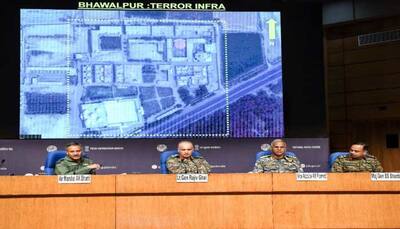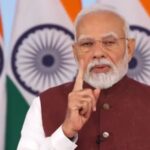New Delhi: As tensions between India and Pakistan recede into an uneasy ceasefire, attention is turning to what many in Indian security circles describe as a familiar pattern – the deep entanglement between Pakistan’s military and terror outfits operating along the border.
The past week’s hostilities, which brought both nations perilously close to escalation, ended with a formal announcement of de-escalation. But behind the diplomatic optics, intelligence inputs and battlefield observations have renewed concerns in Delhi over what officials describe as a “state-backed proxy strategy” pursued by Pakistan.
According to sources, Pakistan’s army maintains active coordination with known terror groups even as its government is engaged in international diplomacy. Indian forces reported multiple infiltration attempts across the Line of Control (LoC) in the hours following the ceasefire announcement, with at least 28 armed individuals neutralised by the Army and the Border Security Force (BSF) in separate operations in Jammu and Kashmir.
While the ceasefire might be on paper, their strategy remains unchanged on the ground – push terrorists across the border under artillery cover and then distance themselves diplomatically.
Among the more troubling indicators, the sources say, was the presence of senior Pakistani army officers at funerals for terrorists killed during India’s ‘Operation Sindoor’. One such funeral reportedly included senior Lashkar-e-Toiba operatives and high-ranking military personnel, prompting questions about the “non-state actor” narrative often used by Islamabad.
Meanwhile, Foreign Secretary Vikram Misri made India’s position unambiguous. At a recent press briefing, he stated that the April 22 attack in Pahalgam marked the “starting point of escalation”, and reiterated that India will now treat any terror attack on its soil as a hostile act warranting state-level response.
That message, the analysts suggest, was aimed squarely at Pakistan Army Chief General Asim Munir. A former ISI chief and long-time player in Pakistan’s security establishment, Munir is believed to be the architect of both the military’s battlefield posture and its ongoing support for irregular warfare tactics.
General Munir’s recent speeches to domestic and overseas audiences have taken a sharp tone. In one address, he described Kashmir as Pakistan’s “jugular vein” and re-extended support for “freedom fighters” – rhetoric seen by Delhi as coded endorsement for cross-border violence.
India’s recent actions were not just about military targets, believe the observers, they were about shifting the rules of engagement. If Pakistan, they say, continues to use proxy actors, they can expect state-level consequences.
The Indian military, meanwhile, remains on high alert. In the days following the ceasefire, forces reported a foiled infiltration at Nagrota military station and the destruction of two launchpads near Uri – both incidents confirming that the threat has not receded with the firing.
Highlighting a patter, the analysts say, Pakistan’s army lets diplomacy take over temporarily, while the infiltration machinery stays active. It is the classic dual narrative they have used for decades.
While Islamabad has denied supporting terrorism, Indian officials point to historical continuity. General Munir was in charge of Pakistan’s intelligence operations during the 2019 Pulwama attack, and his current posture suggests little has changed in terms of intent.
What has changed, however, is India’s declared threshold for response.
Going forward, the line is clear. Proxy attacks will not be considered in isolation. They will be treated as acts of war by the state that shelters them.
As the dust settles on the most intense flare-up in years, one question lingers in policy circles: will Pakistan dial back its strategy or simply repackage it?
Stay informed on all the , real-time updates, and follow all the important headlines in and on Zee News.








